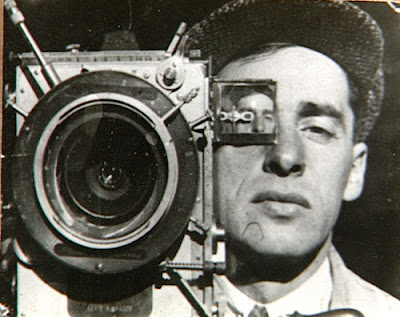 |
| Jean Vigo |
Back in the
60s MUFS used to present an annual “Night Season” to complement its in-term daytime
screenings and Friday night classics. There was a season of Ford and Hawks
another titled “Violence in the Cinema” (Don Siegel, Michael Powell, Andrzej
Wajda etc) and, several times, selections of French classics. One was dedicated
to Cocteau, Bunuel, Melville and others, another to Jean Renoir and another to
a season which included two films by Jean Vigo, L’Atalante and Zero de
Conduite. That’s as far as my memory goes, beyond recalling that the French
imports were all on 16mm and came from the likes of Connoisseur Films and
Contemporary Films, both London-based distributors which claimed to own
‘British Commonwealth Rights’.
Two films
among them will appear in this list, both having had significant restoration
work done on them in recent years.
So first to
Jean Vigo’s L’Atalante (France, 1934). The MUFS Committee watched the somewhat grey and battered prints
on more than a few occasions beyond the couple of public screenings. By the time
the prints were sent back, I was convinced that L’Atalante was the greatest, most poignantly romantic film I had
ever seen. Fifty years later I haven’t shifted very far from that view.
Yet the
film had a chequered life. When it was first released in France it had already
undergone a title change from L’Atalante
to Le
Chaland Qui Passe. Fortunately, a print of L’Atalante
had been sent to London and that copy has been the basis for all the subsequent
restoration work.
One of the great regrets of the choices I’ve
made at Bologna over the last six years was to miss the session presented by
Bernard Eisenschitz which screened and discussed a cache of outtakes from the
film. The material was edited into a
film titled L’Atalante – Rushes et
Chutes.
In his accompanying catalogue notes Eisenschitz reported as
follows: At the end of the 1940s, the
Cinemathèque française acquired an
ensemble of outtakes from L’Atalante …Many viewers have been
struck, and with good reason, by these images outtakes when they were edited
into various restored versions…Now it is finally possible for us to discover,
together with the restoration of the film in its pristine form, precisely what
material was shot and then discarded – material that both illustrates the story
of the working process, and the nature of the director’s inspiration.
The second restoration,
way back in 1990 (the first was in 1950 and was done by Henri Langlois, who
simply inserted two shots), was deemed worthy of an opening night at MIFF when
Tait Brady was the festival director. It went on before a massive crowd at Arts
Centre on Southbank.
 |
| Jean Daste, Dita Parlo, L'Atalante |
What the
crowd made of it I don’t recall but I’d have no hesitation in saying it’s the best
film ever screened at a MIFF Opening Night, more than likely the best film ever
screened at MIFF or indeed MFF.
The Criterion
Edition of the previous 2001 restoration is full of superb extras to back
up yet another version of the film.
But now,
having squandered an opportunity in Bologna to see the latest restoration, I’ll have to update my old DVD
edition, released locally by Madman and which is the same as for Criterion but without
all the extras, to once again confirm the film’s place in the Pantheon.
In the
meantime, David Thomson’s enthusiasm is infectious: This is not so much a masterpiece as a definition of cinema – and thus
a film that stands resolutely apart from the great body of films…L’Atalante is the end of Jean Vigo’s life, yet it is
the dawn of so many possibilities in cinema and a manifesto for a kind of
personal cinema that may destroy the filmmaker in the process while leaving his
name like a memorial.
(…..And for
those of you who love a cinematic homage, you should watch Bernardo Bertolucci’s Il Conformista for one of the most touching gestures in film
history. If I knew how to do a screen cap I would have included one such here…)



No comments:
Post a Comment
Note: only a member of this blog may post a comment.